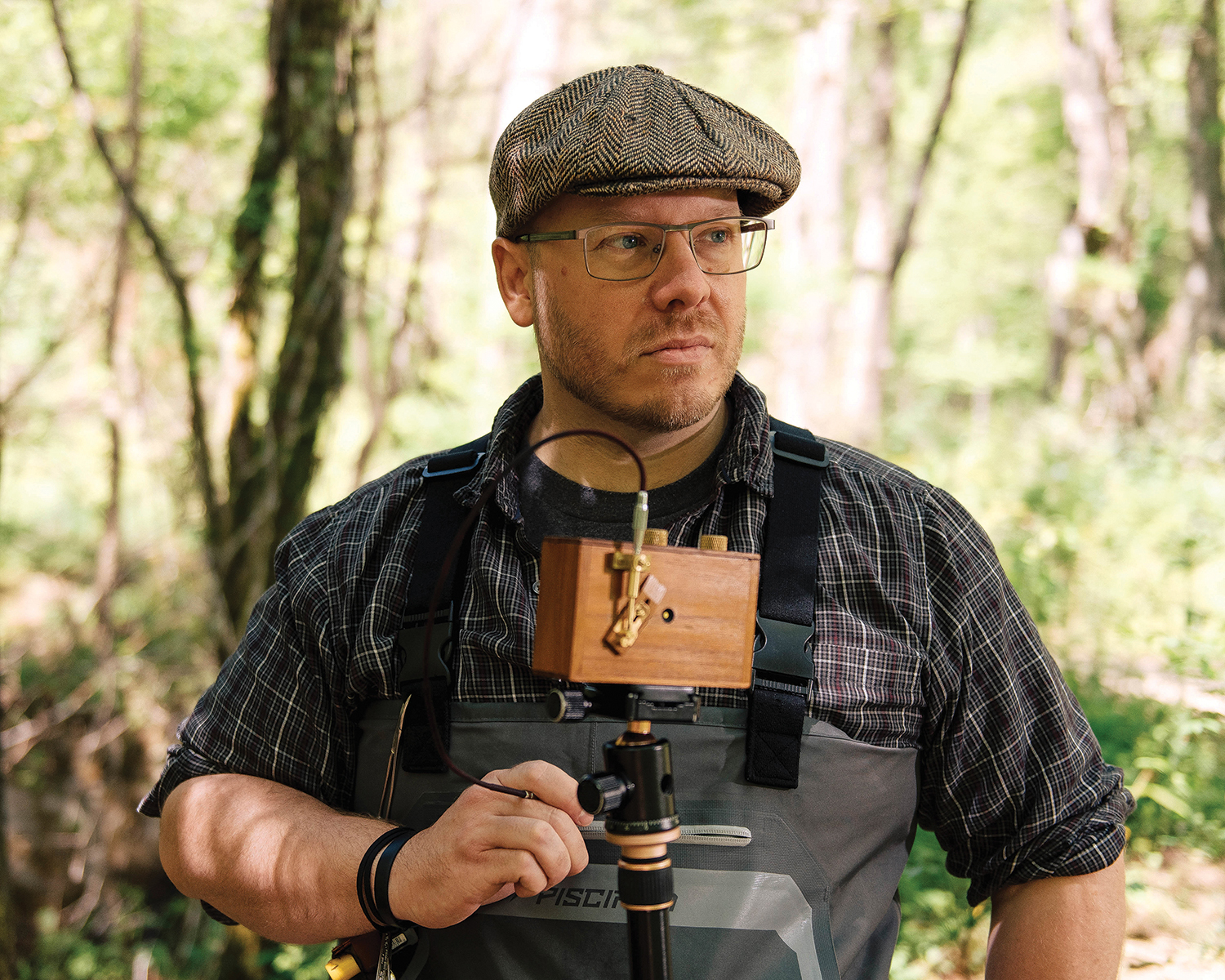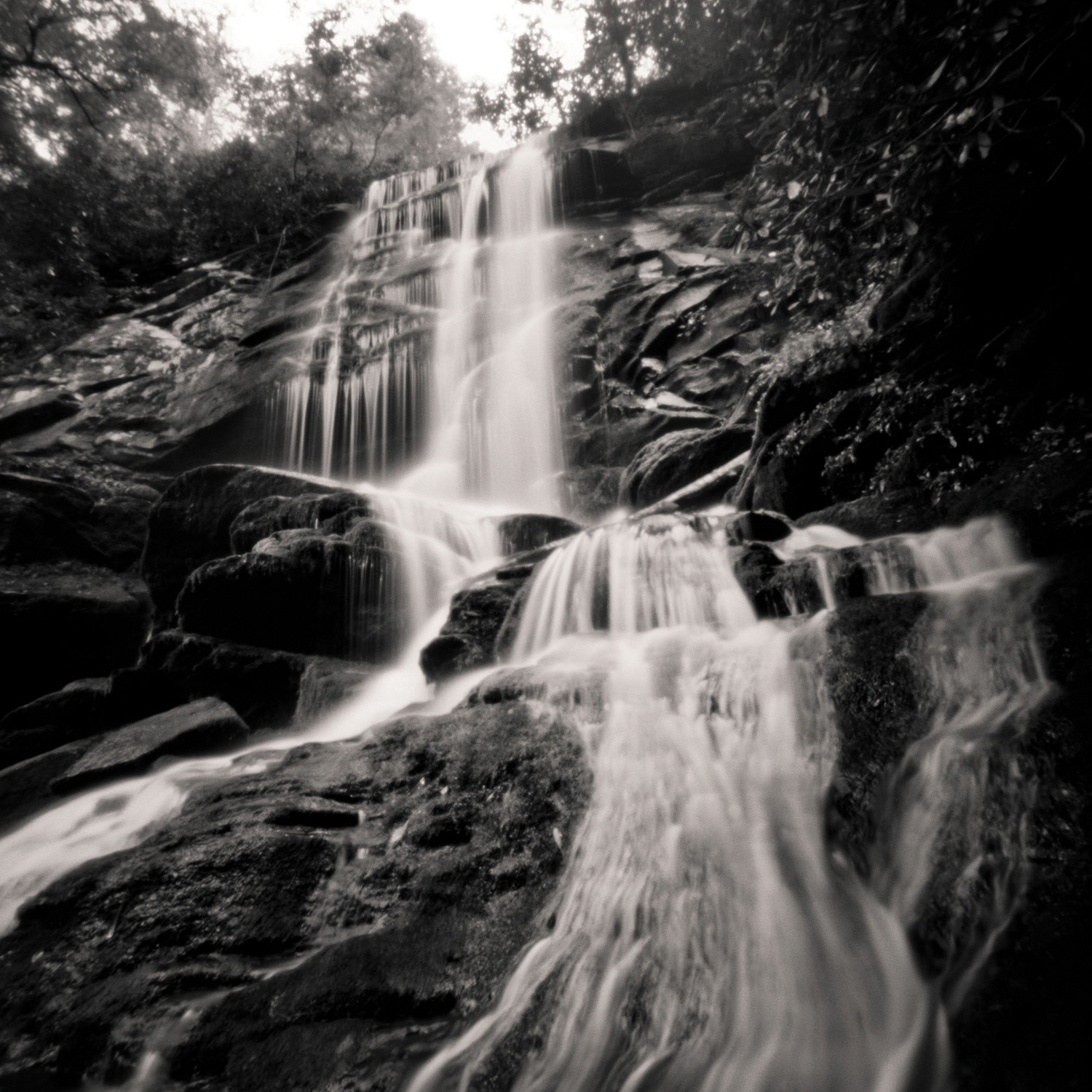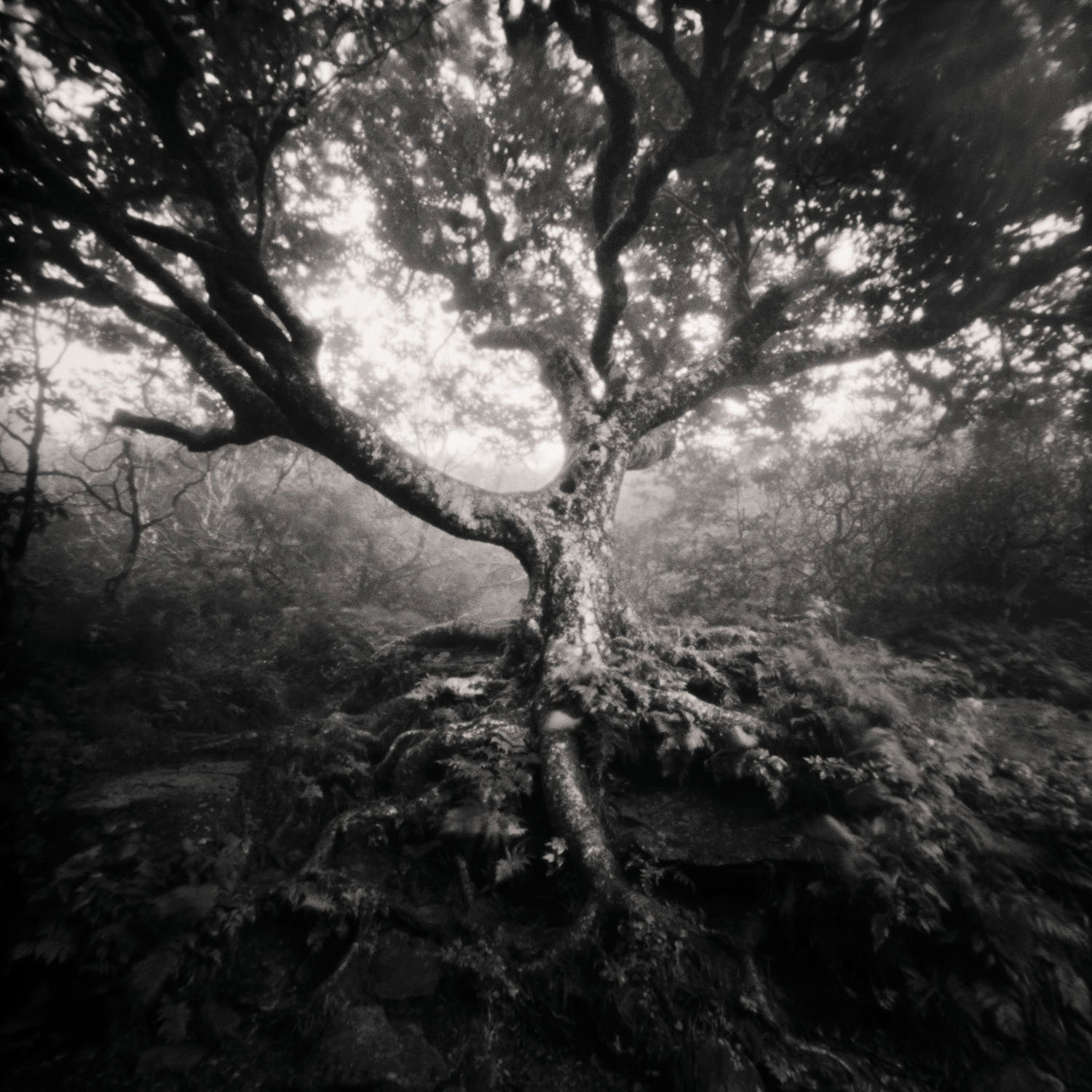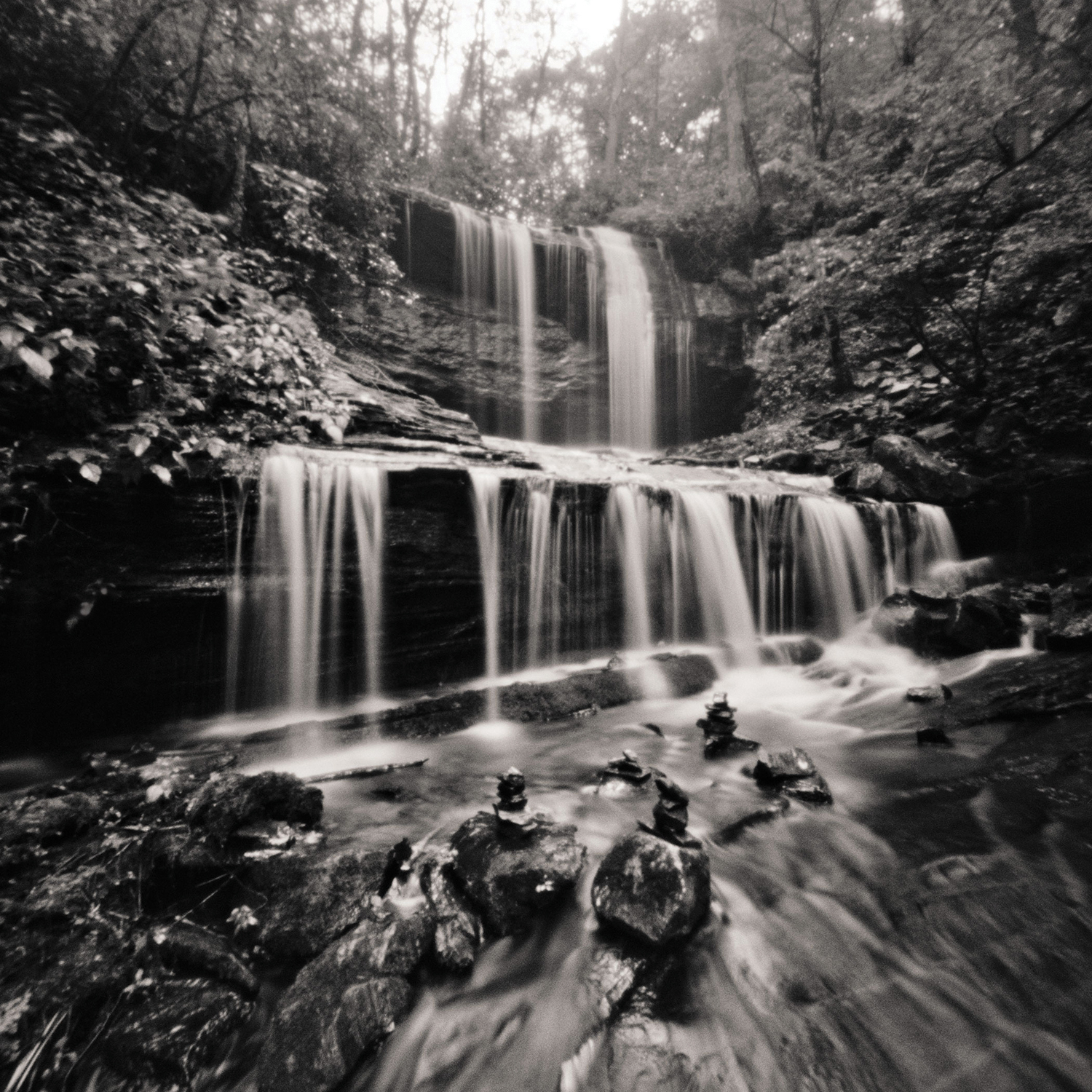
“Gone fishin’” is often a euphemism for goofing off. And indeed, when photographer Max Cooper first took it up a few years ago, it was a hobby — and, he admits, a means to get out of the house and the studio.
But something funny happened on his treks to find a good fishing hole. “I was seeing mobs of tourists standing in front of waterfalls, and they’d all have their cell phones out taking a picture,” recalls Cooper. “Or loads of enthusiasts with giant digital cameras on tripods. I’d look at the waterfall and look at them and think there was something about that process that didn’t feel right to me.”

He pondered the notion of going to the most over-photographed places in Western North Carolina, which are typically waterfalls, ditching modern technology, and shooting them with the simplest camera he could find.
The tool he tracked down and purchased in 2019 could not be more austere. A modern pinhole camera, he explains, “is literally a very lightweight wooden box with a sliver of metal and a pinhole drilled though it. There is no lens, just a hole you uncover so the film is directly exposed to whatever you’re shooting.”

Film is how Cooper started when he was just ten years old, taking a 110 camera on a school field trip to the South Carolina Zoo in Columbia where, he says, he took “really bad pictures of animals.” If he wasn’t exactly hooked then, he developed a passion for the craft in college — which he confesses was an extended affair — and then professionally, shooting for newspapers small (The Times Journal in Burnsville) and big (The New York Times). He initially worked in film and then followed the norms of the field to go exclusively digital around 2005.
He also saw the writing on the wall for newspaper photographers and became disillusioned with print journalism in general. “Staff photographers were being laid off left and right, and it seemed to me the only people making a profit were the publishers. If I wanted to make a good living, weddings were where the money was.”

Though he had hung photography art shows in Asheville since about 2004, he stopped in 2009 to focus on his business. “I was completely done with film, got rid of all my cameras, and never wanted to go back to it.”
And then he went into the woods. Despite the rudimentary construction and optics of a pinhole camera, Cooper says that, in fact, there is more depth in the focus and the resultant images convey a more lingering story. “It’s not necessarily sharp — which is part of the appeal — but it is in focus.”
Since picking up the pinhole, he has reacquired more film cameras, which he uses to shoot things he sees along the way to his destination. “Because the wedding business was wiped out by COVID, I spent most of 2020 crawling around the woods taking photos with film — and it was great.
“Weddings are coming back, but I love honoring these simple places made by time in the simplest way.”
Max Cooper, Asheville. Cooper’s work is represented by Mountain Made in the Grove Arcade (1 Page Ave., downtown Asheville, mtnmade.com). For more information, see maxcooperphoto.com.